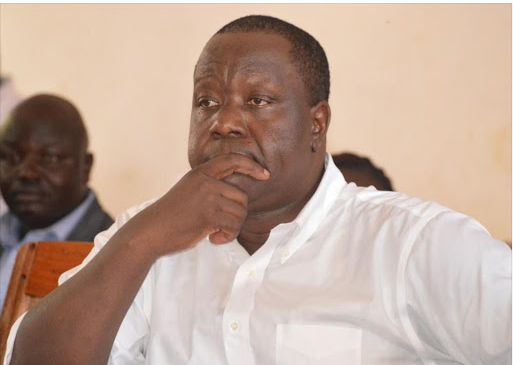Who Can And Who Cannot Donate; The Rules And Whole Processs Of Kidney Donating In KNH

Kenyans have been wondering how much a kidney costs at the Kenyatta National Institution, which prompted the hospital to respond by clarifying that they do not purchase human organs.
Whoever wants to sell their organ should know that KNH can only do kidney transplants on family members.
This means that you can only give a kidney to a member of your immediate family, often known as your nuclear family, if you are connected to them by blood, legal adoption, or marriage.
“At KNH we only do transplants among people with emotional relationships. We believe that where there is no relation, the donation is motivated by finances. You cannot commodity human organs, who determines how much it is,” said Sister Nancy Wang’ombe, the Transplants Coordinator at KNH.
The Istanbul statement led to the decision to restrict donations among family members.
At the recently opened Centre for Kidney Diseases and Organ Transplantation at the Kenyatta National Hospital, Citizen Digital walks you through what goes on there.
How can a donor be recognized?
Calling the patient’s family members to inform them of the kidney transplant procedure, its health risks, and potential financial costs is the first step in finding a donor.
Family members are used to identify potential donors, who are then assessed according to a variety of demographic factors to determine the most suited candidate.
If an older person meets the medical criteria, they are more likely to donate kidneys.
“A kidney transplant can last up to 20 years, if today we pick a 55-year-old, when we need another kidney we will go to the younger one,” says Sr Wang’ombe.
The first steps of the procedure, which takes close to six weeks, start when the identified donor and receiver go through another counseling session together.
The tests could cost up to Ksh.200,000 and NHIF could pay for the surgery.
“There is a medication that the recipient should take after the surgery, it is the most important to ensure the Kidney is not rejected,” Sr Wang’ombe says.
A donor must pass a battery of evaluations that are graded on a scale of 1 to 6 before being determined to be the best match.
How a kidney transplant is performed surgically
Two rooms have been set up at the Kenyatta National Hospital so that a donor and recipient can have surgery together.
A transplant theatre nurse at KNH, Daniel Mwangi, describes what happens while the donor and recipient are having surgery.
“After harvesting a graft (kidney) we clean it in another room before taking it to the recipient. The time between when we harvest and when we clean the kidney is the most important so that we do not lose it. It should be as short as possible, between 30-45 seconds,” he said.
The hospital’s 17-bed transplant unit serves as a recovery area for both donors and recipients.
A board of medical professionals meets before a transplant is performed to evaluate the compatibility of a donor and recipient and make sure there are as few dangers as feasible. Each week, one transplant is performed.
In addition to kidney transplants, the hospital is looking at Cornea transplants and will soon be able to perform split-liver transplants.

 The Road to Victory: President Ruto’s Triumph in the August 2022 General Election
The Road to Victory: President Ruto’s Triumph in the August 2022 General Election  Finance Bill 2023- The Benefits
Finance Bill 2023- The Benefits  How Small Businesses Can Use AI to Increase Sales In Kenya
How Small Businesses Can Use AI to Increase Sales In Kenya  Not Today; Matiang’i’s Lawyer Says His Client Will Not Appear Before DCI Today
Not Today; Matiang’i’s Lawyer Says His Client Will Not Appear Before DCI Today  Senator Onyonka Urges President Ruto To Be Careful On How He Handles Matiang’i’s Case
Senator Onyonka Urges President Ruto To Be Careful On How He Handles Matiang’i’s Case  Form One Student Beaten To Death By Teachers Over Alleged Physics Exam Cheating
Form One Student Beaten To Death By Teachers Over Alleged Physics Exam Cheating